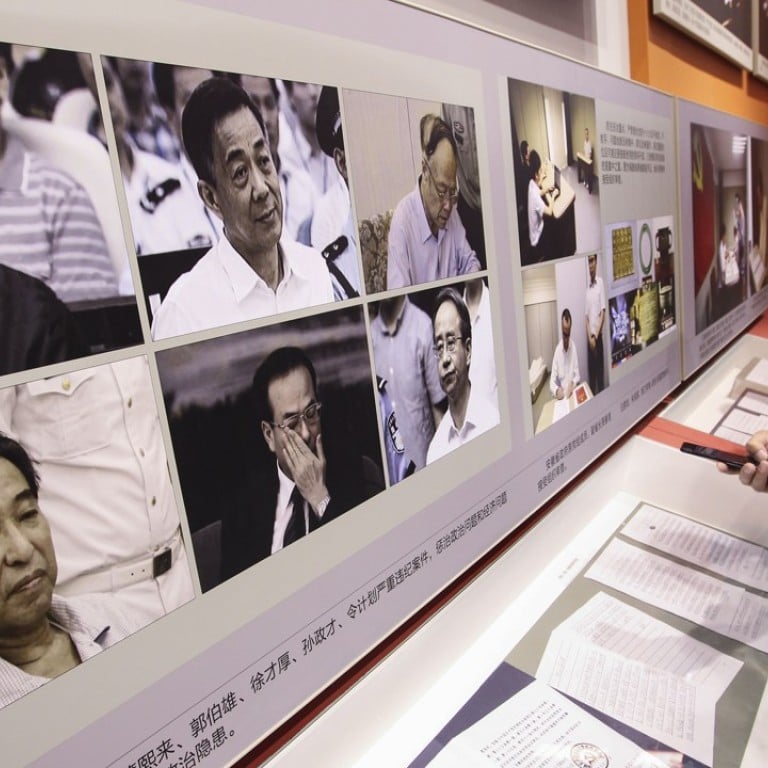
Corruption is the life and soul of a command economy
There can’t be any surprise over the fall of another senior Chinese official in the campaign against graft: after all he was just doing what comes naturally
Former political rising star Sun Zhengcai has been expelled from the Communist Party and will face prosecution, state media reported yesterday – two months after his shock downfall and just weeks before the party leadership reshuffle
SCMP, Sept. 30
I cannot understand the “shock” here. What is so surprising in the news that yet another top party boss has been sacked for taking bribes and living the high life on public money?
Corruption does not just afflict a command economy randomly as an unwelcome parasite might do. It is in the very nature of the beast, the skeleton of the system, as basic to it as flour is to noodles.
Calling it shock makes you wonder whether they are such true believers in Beijing as to think that Karl Marx really came up with the ultimate reality for all time and the dictatorship of the proletariat is therefore immune to graft.
Well, I suppose they do believe it. They still formally swear faith in this old-time religion. They would otherwise have some very deep and uncomfortable questions to ask themselves.
Here is how it works. You graduate from your schooling and get a job in the state machinery. Hurrah, hurrah, you have made it. And then, after your first month in the job, one of your senior colleagues quietly passes you an envelope that clearly contains cash.
What do you do now? You know what it is. Turn it down and you become a danger to your workmates. You could inform on them. They will find ways of forcing you out.
But take it and you are part of their system. The envelopes will keep coming from now on and soon you will rely on them. You will no longer have the choice of getting out. You can only move further in.
And then, as you move up the chain of promotion, it becomes you who must pass out the envelopes. You don’t do it from your own pay. In fact, it may have cost you money to buy your job. You must find ways of raising money through the public affairs you administer. The higher you go the more involved you become and the bigger the sums involved.
This is not just an aberration in the system. It is the system. It just naturally grows that way. In a command economy everyone either pays or is paid under the table. To get anything more than a simple shop purchase you must bribe the person in charge.
But it does not naturally go that way in a market economy. Price gets in the way. The bribe raises the price and then the buyers vanish and the money is no longer available.
This is why Transparency International routinely finds that public sector industries are the most corrupt and private sector ones the least. The system in a market economy naturally suppresses corruption as the system in a command economy encourages it.
Of course, in this case we may also be looking at Act III, Scene I of the Bo Xilai story. Sun Zhengcai was party boss in Chongqing and earlier stood accused of not having rooted out Bo’s “pernicious ideology legacy.”
This only highlights another failing of command economies. The bosses easily turn paranoid about each other. They took to murder in 1930s imperial Japan, and in Russia, shortly before his death, Joseph Stalin put the entire Soviet medical profession under interdiction in the supposed “Doctors Plot.”
I shall say it again. This is not unusual. Sooner or later it is what you inevitably get in command economies.
Fortunately, we are nowhere near this stage yet across the border. There is still real ideological direction in Beijing, even if more nationalist in character now than it ever was communist.
The problem at this stage is rather that lower-down bosses, temporarily bereft of easy access to their usual decision-making system through the president’s anti-corruption campaign, really don’t know which way to jump any longer.
So they just keep going in the direction they were going before, pedal to the metal, and capital continues to be misallocated to industries that already suffer from huge overcapacity.
But that’s also what happened in the Soviet Union. The more things change ...

